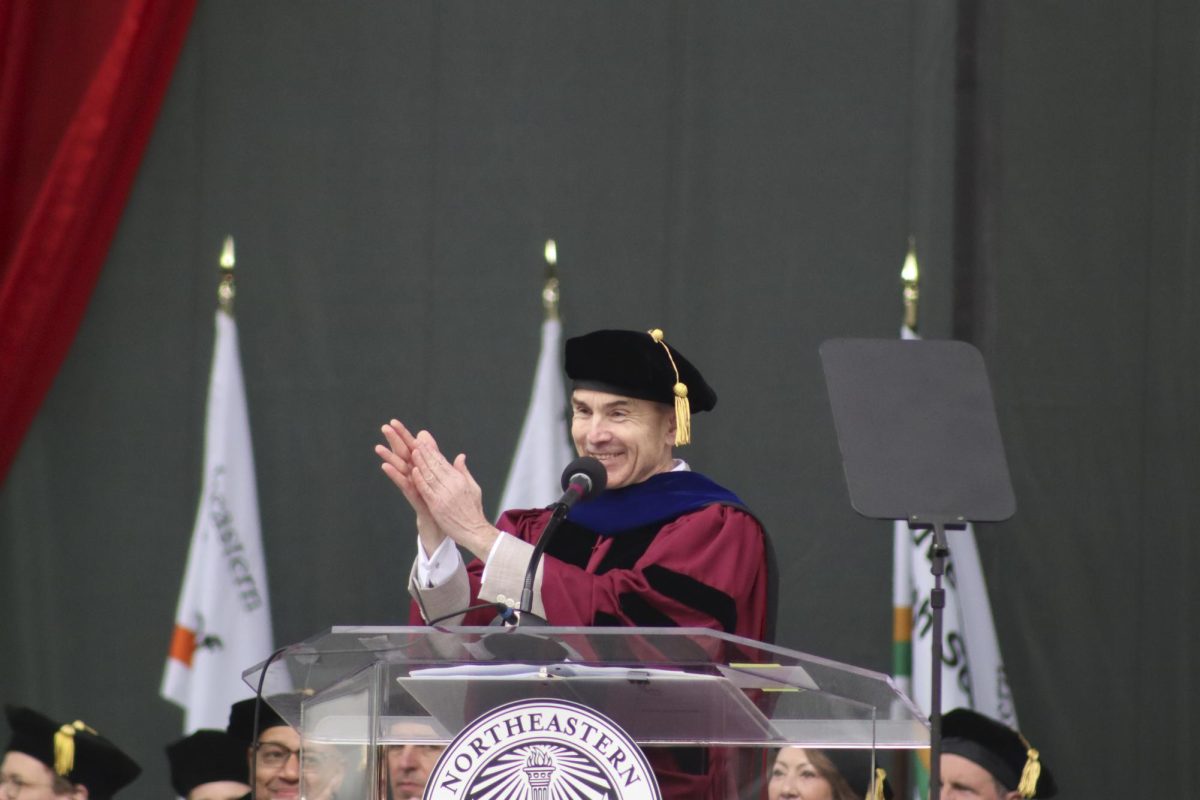By Todd Feathers, News Correspondent
Almost 1,000 disgruntled members of the Huntington Avenue YMCA have begun distributing and signing a petition to prevent Phoenix Property Company and Northeastern from buying two wings of the building and constructing a dormitory in their place.
More than 970 of 2,700 Huntington Avenue branch members have signed the petition, which began in late January.
No official purchase and sale agreement has been signed by the YMCA or Northeastern, but an unofficial agreement has been reached for Phoenix Property Company to buy the Hastings Wing and the St. Botolph’s frontage for $21.5 million, according to an Oct. 22, 2010 statement from Northeastern. The YMCA will retain the iconic front portion of the building facing Huntington Avenue.
Phoenix plans to invest an additional $75 million to build a 17-story dormitory containing 590 beds in dorm-style rooms and 130 beds in apartment-style rooms. Northeastern will then lease the building from Phoenix, with the opportunity to purchase the building at a later time.
Some YMCA members said they are outraged they were not consulted on what they believe was a backroom deal shrouded in secrecy. They are afraid the building will be sold and demolition will begin before the new gym and community facilities have been built.
“There’s going to be this big void, and it’s going to be devastating to the members,” said Calvin Arey, a 14-year member of the YMCA and lead organizer of the petition. “We feel, in this particular case, that Northeastern is the bad guy … they have pushed hard to put this on fast track. The members are just being steamrolled.”
Northeastern’s efforts to build the new dormitory are a result of a commitment the university made to the city of Boston in 2006 to house 1,800 more students on campus. The construction of International Village, which contains 1,200 beds, filled part of that quota.
Northeastern Director of Communications Renata Nyul declined to answer questions or comment on the issue.
This is the second time Phoenix Property Company has attempted to buy portions of the YMCA building with the intention of building a dormitory in their place. In 2007 the company’s application to build a 34-story, 1,140 bed dormitory fell through after it ran into strong opposition from the community.
The dormitory, known as the GrandMarc, was to house students from several different Boston colleges, including Northeastern.
A university policy announced this year that will require sophomores to live on campus starting with next year’s incoming class has also increased the demand for on-campus housing.
Kelley Rice, head of external affairs for the YMCA of greater Boston, said the organization wants to sell the building in order to gain the money necessary “to put a 21st century Y at that location.”
The building, which was built in 1912 and is the oldest YMCA building still standing in the country, is badly in need of renovation, Rice said. If the sale does go through, the YMCA plans to invest over $10 million in renovating the building, including making it more friendly and accessible to families with small children, Rice said.
YMCA members said they agree the building needs to be improved, but they are angered by the process by which the YMCA administration is attempting to do so.
At a question and answer session held Monday night by YMCA officials, several YMCA members asked why the administration was attempting to sell parts of the building in order to raise money instead of asking for donations from members, which they said would be forthcoming. They received no answer.
At the same meeting, other members described the process as backwards and questioned why plans to demolish the building were so far along when plans to build new facilities in the retained space had not even begun.
Phoenix Property Company applied for a demolition permit in June, and Northeastern sent an application to build the new dormitory to the Boston Redevelopment Authority in November.
The first meeting between architects and YMCA officials will be Feb. 15, in which they will discuss the feasibility of renovating the retained space to hold all the facilities YMCA members want. YMCA members are afraid they will find out it is not possible to fit all the facilities they currently have, such as a full basketball court and locker rooms for the swimming pool, in the 50,000 square feet the YMCA is keeping.
“It’s my goal that Northeastern is able to build a dormitory there,” said Boston city councilor Mike Ross, who has worked with residents of Mission Hill in the past to encourage Northeastern to house more students on campus. “I do believe that it is possible to do the YMCA project in such a way that YMCA services continue, and that the dormitory is created.”
Ross and Kelley said complaints from surrounding communities about students who live off campus have been a driving force behind Northeastern’s efforts to build the new dormitory.
The university agreed to cap the number of undergraduate students it allows to enroll at 15,000 in order to control housing shortages in the surrounding communities.
But some YMCA members who live near Northeastern said they believe keeping the YMCA building on Huntington Avenue is more beneficial to the community than making sure more students live on campus.
David Mynott, a 51-year-old Dorchester resident, lived near Northeastern for more than 30 years.
“The undergrads did have a tendency to party sometimes,” he said. “Sometimes it got out of hand, but not that often. Our issue is more with the Northeastern administration and not the students.”
The first-ever Northeastern class was held in the YMCA in 1898, when the university was known as the Evening Institute for Young Men, and some students don’t believe it is right for the university to buy and demolish part of the historical building.
“You should respect your grassroots,” Nina Lowery, a sophomore biology major said.
Joe Saliba, a sophomore electrical engineering major, said he didn’t think the YMCA members could do anything about the sale if it was “fair and square,” but he understood why they were upset.
“I definitely don’t think it’s a good approach, because there are a lot of people who have ties there,” he said.
The university and Phoenix Property Company have said they would like to begin construction of the dormitory this summer, in order to have it completed by the start of the Fall 2013 semester, but the YMCA members said they are not done fighting.
To stop the sale, members said they will pursue a variety of methods, including contacting Massachusetts Attorney General Martha Coakley for legal advice.
“I don’t know whether we’re going to be successful, but we’re pulling out all the stops,” Arey said.









